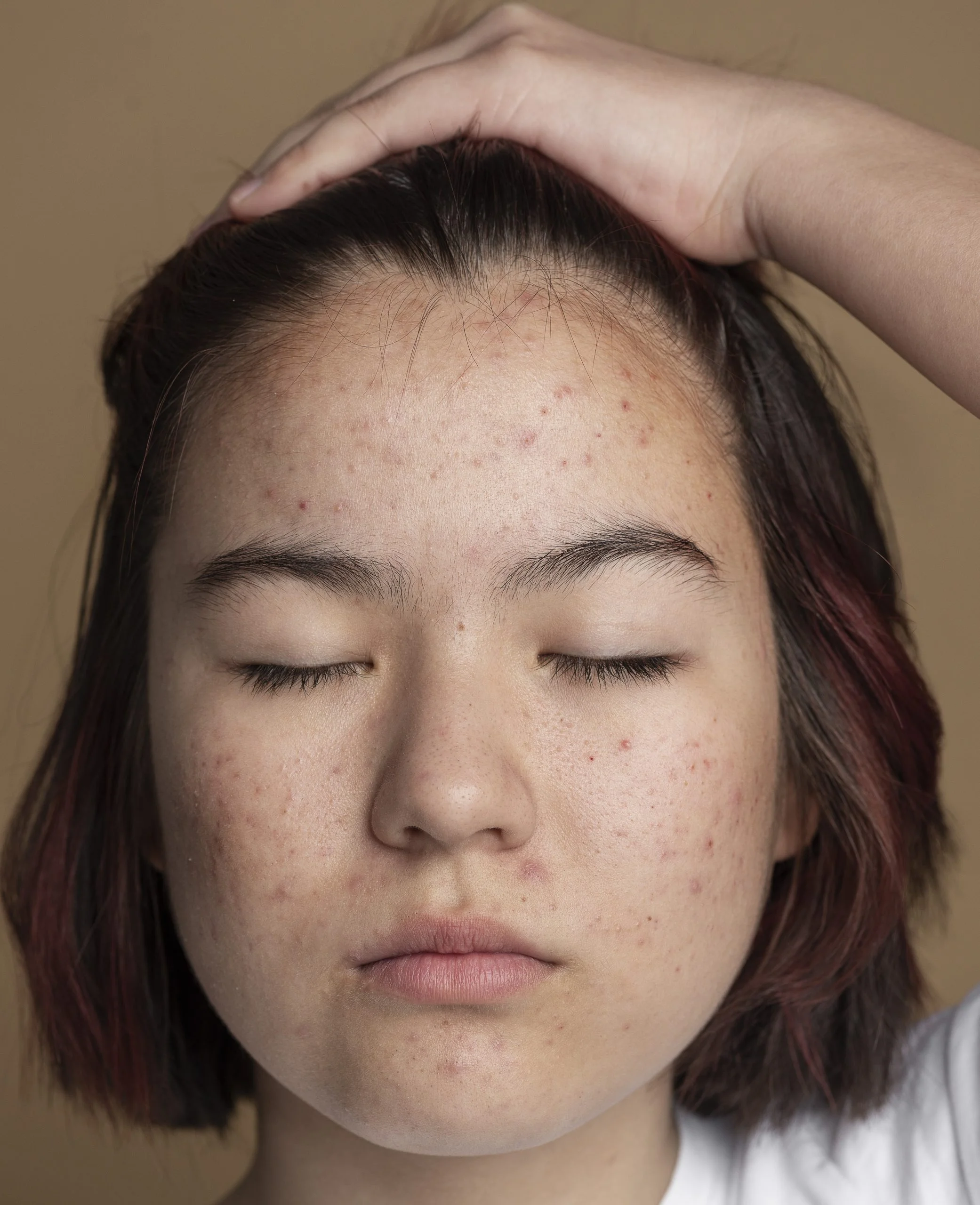Radiance Restored
Pigmentation
Explore advanced treatment options and effective solutions tailored for this condition.
Overview
Pigmentation
Pigmentation refers to the coloring of the skin, which is determined by the amount of melanin produced by melanocytes. When melanin production becomes unbalanced, it can lead to skin discoloration. Hyperpigmentation occurs when excess melanin causes dark spots or patches, while hypopigmentation results in lighter skin areas. Common causes include sun exposure, hormonal changes, inflammation, aging, and certain medications or skin conditions. Pigmentation issues are usually harmless but can be a cosmetic concern. Treatments range from topical creams and sunscreen to chemical peels, laser therapy, and dermatologist-guided care.
Book a personalized consultation today to discover how we can help you achieve radiant, flawless skin.

Talk to Our Experts
Pigmentation
Pigmentation refers to the coloring of the skin, which is determined by the amount of melanin produced by melanocytes. When melanin production becomes unbalanced, it can lead to skin discoloration. Hyperpigmentation occurs when excess melanin causes dark spots or patches, while hypopigmentation results in lighter skin areas. Common causes include sun exposure, hormonal changes, inflammation, aging, and certain medications or skin conditions. Pigmentation issues are usually harmless but can be a cosmetic concern. Treatments range from topical creams and sunscreen to chemical peels, laser therapy, and dermatologist-guided care.
What Causes Skin Pigmentation?
Sun Exposure: UV rays stimulate melanin production, leading to sunspots, tanning, or uneven skin tone.
Hormonal Changes: Conditions like pregnancy or use of birth control pills can trigger melasma (dark patches).
Inflammation or Injury: Post-inflammatory hyperpigmentation (PIH) occurs after acne, burns, cuts, or other skin trauma.
Genetics: Some people are naturally more prone to pigmentation due to inherited skin traits.
Aging: Age spots or liver spots develop due to prolonged sun exposure and skin aging.
Medical Conditions: Disorders like Addison’s disease or certain metabolic conditions can affect skin pigmentation.
Medications or Chemicals: Certain drugs or skin care products can trigger pigmentation changes as side effects.
Types of pigmentation treatments we offer:
At The Zenith Aesthetics, we provide advanced and personalized treatments to effectively reduce and manage all types of skin pigmentation. Our expert team uses clinically proven techniques to help you achieve clearer, even-toned, and radiant skin.
Our Pigmentation Treatment Options:
Chemical Peels Gently exfoliates the skin to reduce dark spots, melasma, and uneven tone.
Laser Therapy Targets deep pigmentation and stimulates collagen for brighter skin.
Microneedling with Serums Enhances skin repair and reduces post-inflammatory pigmentation.
HydraFacial Brightening Treatment A deep-cleansing and hydrating facial with added brightening boosters.
Topical Skin Lightening Products Medical-grade creams tailored to your skin type and pigmentation level.
Carbon Laser Peel (Hollywood Peel) Minimizes pigmentation while refining pores and improving skin texture.
Mesotherapy for Pigmentation Infuses active ingredients directly into the skin for faster, targeted results.
Symptoms of Skin Pigmentation
Here are the common symptoms of skin pigmentation:
Dark Spots or Patches: Areas of the skin appear darker than the surrounding skin, often brown, black, or gray.
Uneven Skin Tone: Irregular coloring across the face or body, making the skin look blotchy.
Freckles or Sunspots: Small, flat, dark spots usually caused by sun exposure.
Discoloration After Injury or Inflammation: Dark marks left behind after acne, cuts, burns, or skin irritation (post-inflammatory hyperpigmentation).
Pale or White Patches: Lighter areas of skin, indicating hypopigmentation (like in vitiligo or fungal infections).
Who is the right candidate for Pigmentation treatment?
The ideal candidate for pigmentation treatment is someone who:
Has visible skin discoloration – such as dark spots, melasma, sun damage, or uneven skin tone.
Is in overall good health – and free from active skin infections or severe skin conditions.
Has realistic expectations – and understands that results may vary based on skin type and severity.
Is committed to sun protection – as avoiding sun exposure is essential for effective treatment.
Is not pregnant or breastfeeding – for certain advanced treatments like chemical peels or lasers.
If you’re unsure, a professional consultation at The Zenith Aesthetics can determine the best course of treatment tailored to your skin needs.
